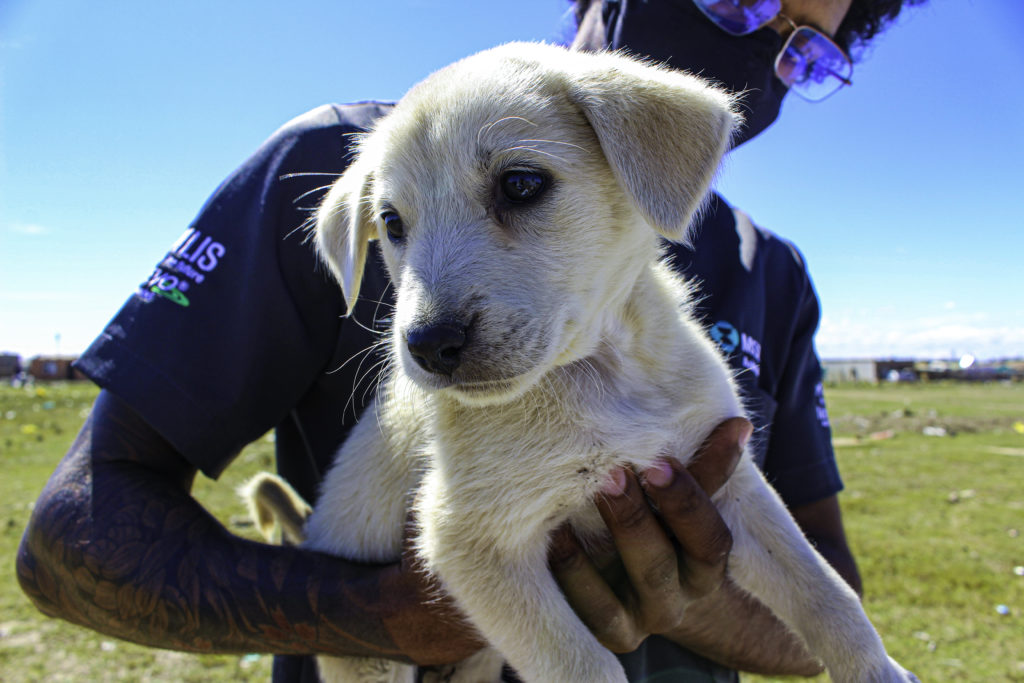By CAITLYN HILLIARD-LOMAS


On Wednesday, 6 October, Dr Amy Jackson-Moss (better known as Dr Amy) of the Makana Vet Clinic and Maloli Dingana from the SPCA set off in their bakkies on a bumpy journey to eNkanini informal settlement on the outskirts of Makhanda. Their goal was to give out free rabies vaccines to the dogs and cats in eNkanini, Extension 9 and Extension 10. Dr Aurobind Padayatchi from Grahamstown CC accompanied them.
The rabies vaccine campaign started at 9.30 am with only a handful of people and their dogs. But, after an hour, the lawns were packed with excited pet owners and hundreds of confused dogs. There were two vaccine stations, one run by Dr Amy and the other run by Dr Aurobind.
Many pet owners gave their dogs a dip bath after their vaccine as a preventative measure for mange.
However, there were a few dogs that were bathed to provide treatment for their mange. Mange is a skin disease caused by parasitic mites entering the dog’s body from the outside. The mites reside in the dog’s hair follicles and skin, causing hair loss, skin irritation and lesions on the skin. If mange is not treated in dogs, it can cause serious infections.


As the vaccination campaign took place over the school holidays, many bored children were sent out with a leash, their pet dog, and instructions to get their dogs dipped and vaccinated. By the end of the day, the veterinarians from the Makana Vet Clinic had administered 500 vaccines – seven to cats and the rest to dogs.
We were so very impressed by the general condition of the dogs and cats we vaccinated in Nkanini, Extension 9 and Extension 10. Most of the dogs we saw were healthy, well looked after and loved, Dr Amy recently said on the Makana Vet Clinic Facebook page.
Five of the dogs that were vaccinated seemed to be in bad health. Dr Amy took the time to chat with the owners to offer advice and find a suitable way forward. Two of these five dogs have been taken into the clinic to be dewormed, sterilized and treated for mange. After their treatment is completed and they are healthier, they will be returned to their owners.
Our vaccine campaigns are not just about vaccinating for us. It’s also an opportunity for us to engage with people and animals, said Dr Amy.



